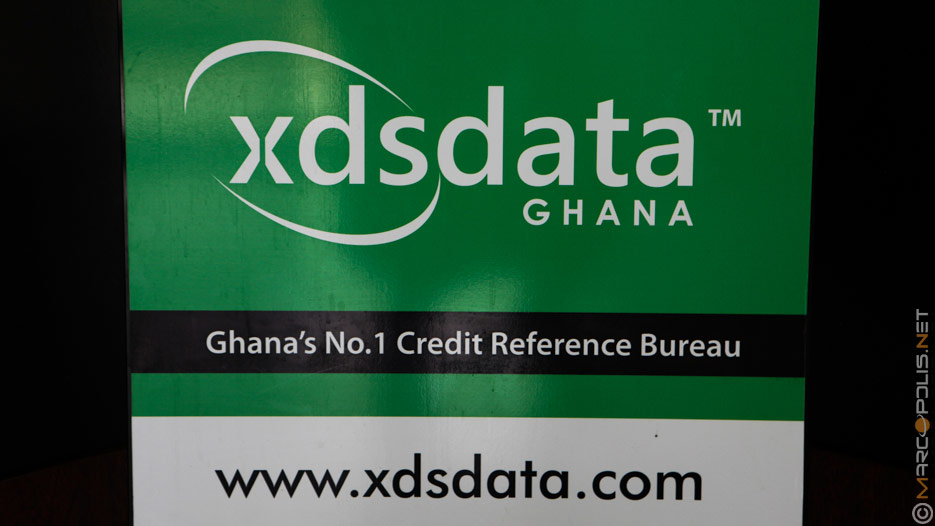Credit Referencing in Ghana Lacks Law Enforcement — XDSData
XDSData, the country’s credit reference bureau, wants to sanitise and grow the financial sector in Ghana.
Interview with George Ahiafor, CEO of XDSData

Can you tell us about the state of the credit referencing system today? What are its major challenges?
I must say that since we started, the participation has grown, determined by the number of enquiries. It is growing a little bit all the time. It could be more; we have been with this system since 2010 so the rate of growth is not that encouraging but that is because of the lack of enforcement. Participation is woeful given the number of financial institutions that we have in this country. For a country of 25 million people you would think that the number of enquiries for access to credit would be increasing a lot but it is not growing as much as we think it should.
How is XDSData weathering the crisis?
XDSData is not the only one to have been hit hard by the current economic crisis. Because of this crisis, people are not willing to pay for value. It is very difficult to charge what we should realistically be charging and it is compounded by the decline of the cedi. What we were charging in 2010 is more than what we are charging now. If you were charging 7,000 or 8,000 Cedis in 2010, which was almost 5,000 US dollars at that time and we are charging the same or in some cases even lower now, it means that customers are paying less than 2,000 US dollars a month. Meanwhile, our expenses are the same or higher than in 2010. Also utilities are a challenge. For us to continue running our database which has to be constantly online, we have to have our generators running 24/7. We also have challenges arising from the decline of the cedi. The utility companies’ prices keep going up and we have dollar exposure which means we have to generate more cedis to pay the same amount. If you have revenue in Cedis and expenses in dollars, you now have to generate a lot more cedis to pay for the same expenses. The environment is very very difficult.
Since we started we haven’t been able to increase our client base. Public awareness is woeful. It needs to happen on a government level but it is not happening. The Central Bank must enforce the usage of credit information in the banking sector. It must enforce that for every credit that is given out in this country, the person’s credit background is checked.

When we started, within a year the NPL rate went down from 18% to about 14%. Then it went down to about 9% but these days it is going back up again. This could be for two reasons: maybe people are all of a sudden becoming broke or otherwise some financial institutions are not participating in the credit referencing initiative. This means that they are not checking the backgrounds of the potential borrowers and as a result are recklessly lending causing these people to be defaulting. People are not respecting the credit reporting act which mandates that every financial institution must participate. Like I said earlier, it needs a lot of enforcement and commitment on government level to make sure that this important infrastructure project succeeds.
With regards to the law enforcement, how are you raising awareness of the importance of this institution? How are you letting the public know the value of it?
Enquiries are picking up but participation is not that encouraging.
When we started this whole initiative we were alone and we tried to take on the public awareness bit to make sure that this initiative succeeds. We started working on public awareness with the little money that we were making until others were licensed. Individually, it does not make financial sense for us to be doing the public awareness; it should be done by government but that is still non-existent. The only type of public awareness we do now is when the radio stations invite me to come for an interview, at times we even have to initiate that ourselves. Much more needs to be done. A lot more effort needs to be put into this so that the public knows what they should do if they want to access credit. Every financial institution should know that there is value in checking potential or existing borrowers’ behaviour before giving money to clients. This will help with the pricing of loans because if a person’s credit behaviour has been good, then everyone will be willing to give them credit and may even be willing to go down on the rates. It will introduce more competition into the financial system because they will know that if they don’t reduce their rates for good borrowers someone else will pick those customers up. It will reduce corruption because if you have a good credit background and you have access to credit, there is no way you are going to be corrupted by somebody, and you won’t need to steal money. Having good credit means that you will have access to money with no sweat. There is a lot more to this than people get to see. People think that we are just a private company trying to make money but it is an infrastructure project that has been in the pipeline of this country for thirty odd years. Now that it has come into fruition, everybody must get on board so that it succeeds.
Since our interview in 2013, have you expanded abroad? Are you currently looking for new strategic alliances?

A strategic alliance would make sense since we are hardly growing. Enquiries are picking up but participation is not that encouraging. It is not as it should be. We have been seeking strategic alliances from financial companies in terms of credit education, taking people through credit training on the credit value chain, understanding of the credit system etc. we also need IT skills from IT companies. We are looking into those alliances. We want to sanitise and grow the financial sector. We have been coming up with new products to make it easier for financial companies because many have technical or IT challenges. We are doing everything holistically to help.
Is there anything else you would like to add?
Like is said, first and foremost for us, we need enforcement. This is a law and the law must be enforced. There are public institutions that are refusing to give information, which is against the law. They are short-changing the financial sector because the banks need to see all of the information. There must be enforcement to make sure that every financial institution is giving the data they are required to give. This is a shared database: you give data and you can see data. It works in everyone’s favour. It is an initiative that doesn’t have a downside because if you have bad credit it is your own doing it is not the credit bureau’s fault. If you want to have access to credit then you need to build up good credit behaviour and then the sky is the limit for you. I mentioned before that in this country accommodation is a problem because every time you want to rent you have to come up with about two or three years’ rent in advance. How many people have that? It breeds corruption. If you have good credit rating, even though it is illegal to ask for such advances, at least you will have access to such credit. You will be able to pay for the things you want gradually so that you can have a disposable income. It is not rocket science. The government must participate fully and the heads of the financial institutions should get involved because if the NPL keeps increasing, it is not good for the country and ultimately it is not good for anybody in the country. Because of the high NPL, the institutions will say that they have to add an additional spread to the cost of credit. I cannot emphasise enough that the government must ensure that this succeeds.
FAIR USE POLICY
This material (including media content) may not be published, broadcasted, rewritten, or redistributed. However, linking directly to the page (including the source, i.e. Marcopolis.net) is permitted and encouraged.